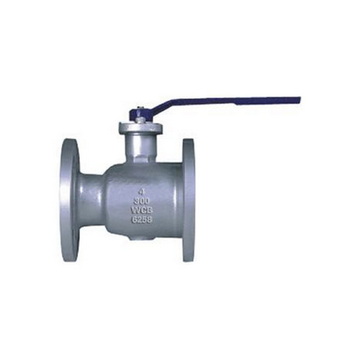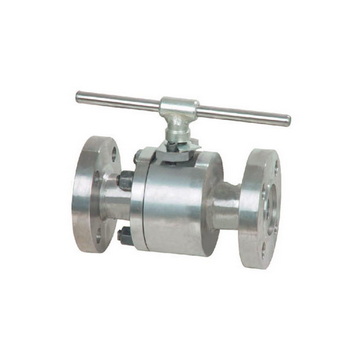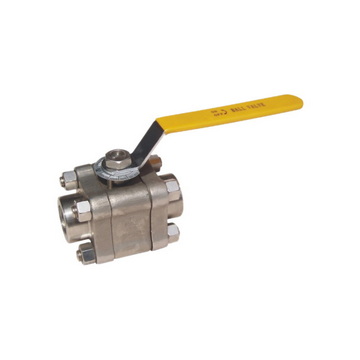Top Cryogenic Ball Valve Manufacturers and Suppliers in Australia
Content Menu
● What is a Cryogenic Ball Valve?
>> Key Features
● Leading Cryogenic Ball Valve Manufacturers and Suppliers in Australia
>> Mack Valves
>> Winnellie Valve and Process
>> RKSfluid (China-based Supplier with Global Reach)
● Advantages of Using Cryogenic Ball Valves
● Application Sectors for Cryogenic Ball Valves in Australia
● Design Considerations for Cryogenic Ball Valves
● Innovations and Trends in Cryogenic Valve Technology
● FAQ
>> 1. What distinguishes cryogenic ball valves from regular ball valves?
>> 2. Which industries in Australia extensively use cryogenic ball valves?
>> 3. How do Australian manufacturers ensure the quality of cryogenic ball valves?
>> 4. What materials are commonly used to manufacture cryogenic ball valves?
>> 5. Can cryogenic ball valves be customized for specific applications?
Australia, with its advanced industrial sectors such as oil and gas, natural gas processing, and cryogenic applications, demands high-quality ball valves capable of handling extremely low temperatures. Cryogenic ball valves are specialized valves designed to control liquefied gases and fluids at temperatures below -150°C, including liquid hydrogen, oxygen, LNG, helium, and ethylene. This article delves into the top cryogenic ball valve manufacturers and suppliers in Australia, showcasing industry leaders, their products, services, and the distinct features that make their cryogenic ball valves reliable and safe.

What is a Cryogenic Ball Valve?
A cryogenic ball valve is a quarter-turn valve with a spherical closing element that manages the on/off control of fluids and gases at cryogenic temperatures. The valve's construction materials and design ensure it operates reliably under extreme cold while maintaining a tight seal to prevent leaks.
Key Features
- Extended stem design to isolate the packing material from the extreme cold media.
- Special sealing materials suitable for ultra-low temperatures.
- Robust body utilizing materials like stainless steel and carbon steel.
- Compliance with international standards such as API, ASME, and ISO.
Cryogenic ball valves differ from standard ball valves primarily in their ability to withstand extremely low temperatures without compromising performance or safety. Materials used in these valves are carefully chosen to prevent brittleness and seal degradation that would otherwise occur under cryogenic conditions.
Leading Cryogenic Ball Valve Manufacturers and Suppliers in Australia
Mack Valves
Mack Valves is a foremost Australian manufacturer with over 80 years of expertise engineering valves for diverse sectors including cryogenics, water management, fire protection, and steam control. Their long-standing heritage and Australian-made accreditation position them as a trusted name in cryogenic valve manufacturing.
Product Range:
- Cryogenic ball valves
- Liquid cylinder valves
- Globe valves
- Safety valves
Specialty:
Mack Valves delivers bespoke solutions tailored for unique industry needs, incorporating strict quality management under ISO 9001:2015. Their cryogenic ball valves are designed to operate reliably under temperatures as low as -196°C, making them ideal for liquid oxygen, nitrogen, and LNG applications.
Applications:
- LNG processing and transportation
- Industrial gases handling
- Oil and gas upstream and downstream processes
Support Services:
Mack Valves provides expert technical support through specialist sales teams and customization of valve designs to fit client-specific requirements, ensuring optimal performance and safety.
Winnellie Valve and Process
Winnellie Valve and Process is known for delivering high-quality cryogenic valves capable of handling low-temperature media such as liquid hydrogen, LNG, and helium. Their expertise lies in offering valves with extended stem designs that isolate packing from the cold media, preventing freezing and leakage.
Signature Features:
- Valves engineered and tested for temperatures below -150°C.
- Support in application engineering and user training to enhance operational safety.
- Versatile range designed for oil and gas, chemical, and energy sectors.
By integrating modern manufacturing technology with rigorous quality checks, Winnellie Valve and Process ensures all products attain industry compliance standards while maintaining cost-effectiveness for their customers.
RKSfluid (China-based Supplier with Global Reach)
While not Australian-based, RKSfluid offers competitive cryogenic and ball valves meeting stringent global standards and serves the Australian market through OEM partnerships. Their portfolio includes floating ball valves, trunnion-mounted ball valves, and metal-seated ball valves suitable for cryogenic operations.
Product Highlights:
- Carbon steel and stainless steel (CF8, CF8M) materials with forged steel options.
- Certified to API, ISO, ANSI standards, and equipped with CE, WRAS, and API certifications.
- Custom manufacturing capabilities allowing adaptation to customer-specific needs.
Applications:
- Petrochemical processing
- Natural gas pipelines and transportation
- Water and oil fluid control systems
Their global experience and quality focus make RKSfluid a reliable source for OEM cryogenic ball valve supply, complementing local manufacturers in Australia.

Advantages of Using Cryogenic Ball Valves
Cryogenic ball valves incorporate a range of advantages critical to safe and efficient handling of ultra-low temperature fluids:
- Reliability: They provide tight shut-off even under extreme cold and pressure, preventing hazardous leaks.
- Durability: Special alloys and sealing materials prevent cracking, deformation, or seal failure.
- Safety: Design features minimize risks associated with handling liquefied gases and volatile substances.
- Ease of Operation: The simple quarter-turn mechanism supports fast valve actuation, essential in emergency situations.
- Low Maintenance: The spherical ball design reduces seal wear, extending valve life and reducing downtime.
Furthermore, cryogenic ball valves are engineered to withstand thermal cycling and pressure variations, which are common in LNG and industrial gas applications. Their resistance to corrosion and fire safety compliance makes them indispensable in harsh environments such as offshore platforms and chemical plants.
Application Sectors for Cryogenic Ball Valves in Australia
Australia's broad industrial base demands versatile cryogenic valves across several sectors:
- Oil and Gas Exploration and Production: From upstream extraction to downstream refining and transport, cryogenic ball valves regulate liquid hydrocarbons and associated gases safely and efficiently.
- Natural Gas Liquefaction and Storage: Facilities require valves that can handle liquefied natural gas (LNG) at -162°C, ensuring both safety and operability.
- Offshore Drilling Platforms: Valves must perform reliably under fluctuating pressures and corrosive seawater exposure in remote environments.
- Seawater Desalination Plants: Cryogenic valves aid in controlling fluids during reverse osmosis and other desalination processes involving low-temperature media.
- Industrial Gas Plants and Transportation: In industries producing oxygen, nitrogen, argon, and hydrogen, cryogenic ball valves are vital for fluid control and safety.
- Petrochemical and Chemical Processing: Many chemical reactions and storage processes involve cryogenic fluids, necessitating reliable valves.
Design Considerations for Cryogenic Ball Valves
When selecting or designing cryogenic ball valves, manufacturers pay close attention to several factors:
- Material Selection: Stainless steels and special alloys must have high toughness at cryogenic temperatures to avoid brittle fracture.
- Seal Design: Soft seats like PTFE or chemically resistant materials maintain tight seals without becoming stiff or cracked.
- Stem Extension: Extended stems isolate packing seals from cold fluids, preventing freezing and leakage.
- Testing and Certification: Valves undergo rigorous cryogenic testing including thermal shock resistance, pressure tightness, and endurance cycling.
- Actuation: Manual, pneumatic, or electric actuators are adapted to operate reliably at low temperatures.
These design elements ensure valves meet safety regulations and operate efficiently for decades under cryogenic conditions.
Innovations and Trends in Cryogenic Valve Technology
The demand for improved cryogenic ball valves has driven several recent advancements:
- Enhanced Materials: New stainless steel alloys and composite materials offer greater strength and reduced weight.
- Improved Seal Technologies: Innovative seals capable of lasting longer under extreme temperature fluctuations minimize maintenance intervals.
- Smart Valves: Integration of sensors and remote actuation allows condition monitoring and automated control crucial for Industry 4.0.
- Compact Designs: Space-saving valves suited for crowded offshore platforms or compact LNG plants improve installation flexibility.
- Environmentally Friendly Manufacturing: Sustainable production methods reduce carbon footprints without compromising valve quality.
These technological trends help manufacturers meet evolving industry requirements, especially in renewable energy sectors involving hydrogen fuel and LNG.
Conclusion
The demand for reliable and durable cryogenic ball valves in Australia's critical sectors such as oil, gas, and cryogenic fluid processing is met by several trusted manufacturers and suppliers. Mack Valves, known for their long-standing Australian manufacturing excellence, offers a broad portfolio with bespoke engineering options, making them a top choice in the region. Winnellie Valve and Process adds to the landscape by delivering specialized cryogenic solutions complemented by expert customer support. Additionally, global suppliers like RKSfluid bring further OEM options with advanced international certifications.
Choosing the right cryogenic ball valve involves understanding the unique temperature, pressure, and chemical compatibility requirements of the application. The manufacturers listed above maintain strict quality systems and invest in innovation to ensure safety, performance, and longevity. Advances in materials, seal designs, and smart technologies continue to enhance valve reliability and operational efficiency in demanding industrial environments.

FAQ
1. What distinguishes cryogenic ball valves from regular ball valves?
Cryogenic ball valves feature extended stems and use materials and seals designed specifically to withstand extremely low temperatures (below -150°C). This prevents brittleness and seal failure common in standard valves not rated for cryogenic use.
2. Which industries in Australia extensively use cryogenic ball valves?
Key industries include oil and gas (upstream and downstream), LNG processing and storage, chemical manufacturing, offshore drilling, seawater desalination, and industrial gas production.
3. How do Australian manufacturers ensure the quality of cryogenic ball valves?
Australian manufacturers like Mack Valves comply with ISO 9001:2015 and relevant API, ASME, and ISO standards. They conduct rigorous testing including cryogenic cycling, pressure testing, and custom engineering to meet client specifications.
4. What materials are commonly used to manufacture cryogenic ball valves?
Common materials include stainless steels (such as CF8 and CF8M), carbon steel, forged steel, and special low-temperature alloys. Seals are made from PTFE or other materials capable of maintaining flexibility and sealing performance at cryogenic temperatures.
5. Can cryogenic ball valves be customized for specific applications?
Yes, many manufacturers, including Mack Valves, provide bespoke solutions designed to meet unique industrial requirements, including customized materials, pressure ratings, stem extensions, and compliance certifications.
Hot tags: Cryogenic Ball Valve Manufacturers Australia, Australian Cryogenic Valve Suppliers, Top Cryogenic Valve Brands Australia, Buy Cryogenic Ball Valves Australia, LNG Ball Valve Manufacturers Australia, Industrial Cryogenic Valves Australia, Cryogenic Valve Companies in Australia, Certified Cryogenic Valve Suppliers Australia, Cryogenic Ball Valve Exporters Australia, Best Cryogenic Valve Manufacturers Australian Market